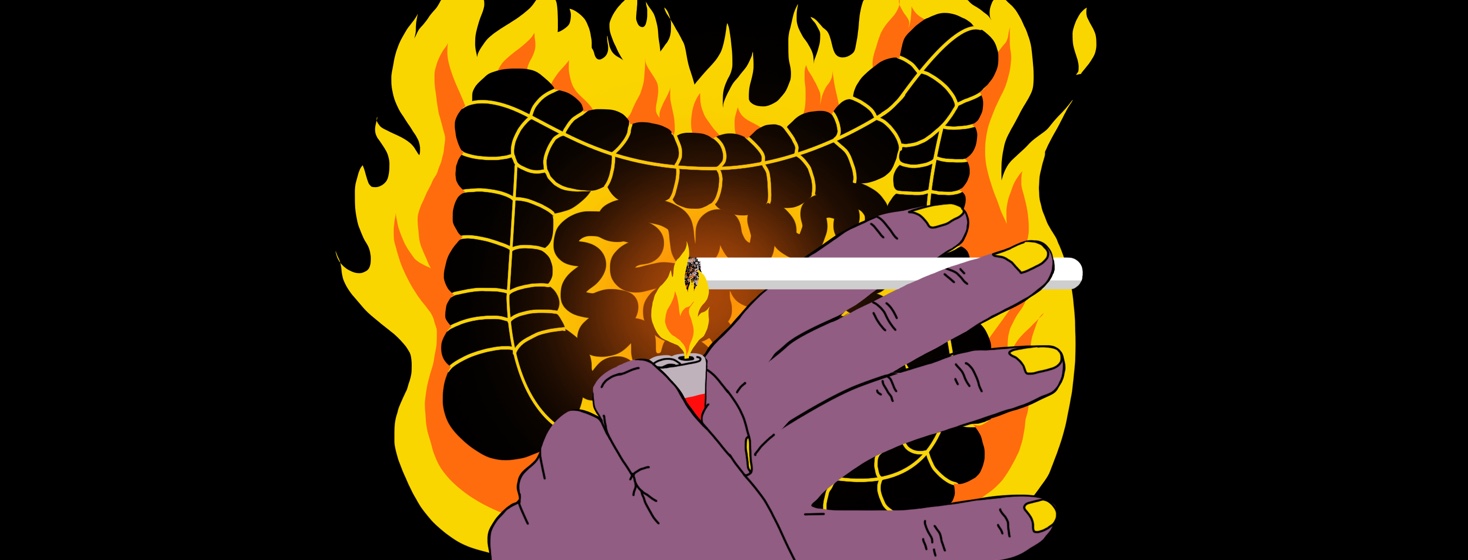Nicotine and IBS
As many of us may already know, nicotine is a stimulant that is used for a smoking cessation aid and the relief of tobacco withdrawal symptoms. It is highly addictive and one of the most commonly abused "drugs." There are many forms of nicotine such as gums, patches, e-cigarettes, and other inhaled agents that are readily available across the world. Many of these are increasingly popular among young people, especially e-cigarettes and vape pens.
I have taken a look at the research and learned a lot about this topic. I'm here to share what I have learned. However, I am not a medical professional. If you are concerned about the use of nicotine or stimulants like caffeine, talk to your healthcare provider.
Hazards of nicotine
Nicotine produces many health hazards including increased risk of cardiovascular, respiratory, gastrointestinal disorders. It also complicates reproductive health, affects cell proliferation, and causes DNA mutation which can lead to cancer. Some research suggests that nicotine can cause resistance to chemotherapy and radiation treatments, which is troubling for folks who require these medications.1
Nicotine also is an initiator and promoter of cancer in the gastrointestinal tract, according to the research. However, this is a very complex mechanism and researchers believe that more study on the molecular level is needed to justify this research claim.2
Nicotine and IBS research
Similar to alcohol and caffeine, nicotine may flare up IBS symptoms. So how does nicotine affect our gut? Nicotine use has been associated with gastroesophageal reflux disorder, as well as peptic ulcer disease. Studies show this is caused by the increase of gastric acid and pepsin. It is said that the nicotine in cigarettes negatively affects the smooth muscle inside the colon, which may alter the tone and gastric motility within the colon.1
Experts who develop clinical trials and work in healthcare recommend people stop smoking if they have Crohn’s disease. Interestingly enough, secondhand smoke in children has the potential to increase the risk of irritable bowel disease. When exposed to secondhand smoke, children have a decreased risk of ulcerative colitis and an increased risk of developing Crohn's disease.2
Personal experience with nicotine and IBS
Those of us who have used nicotine products, even me, knows firsthand what it causes our stomachs to do. It is very similar to what happens when we drink our morning cup of caffeinated coffee; a sudden urge to use the restroom! The most common gastrointestinal side effects of nicotine therapy4 are pain in the upper middle part of the stomach area, indigestion, nausea, gas, diarrhea, and abdominal pain.
I can personally say I’ve experienced many of these symptoms. My experience with nicotine or stimulants gave me more of an initiative to quit. I know it’s easier said than done for some. Trust me, I’ve been there, but it’s all about taking control of your health!
How about you? Have you experienced uncomfortable IBS symptoms from caffeine or nicotine? Let us know in the comments or start a forum on this topic to let us know.

Join the conversation